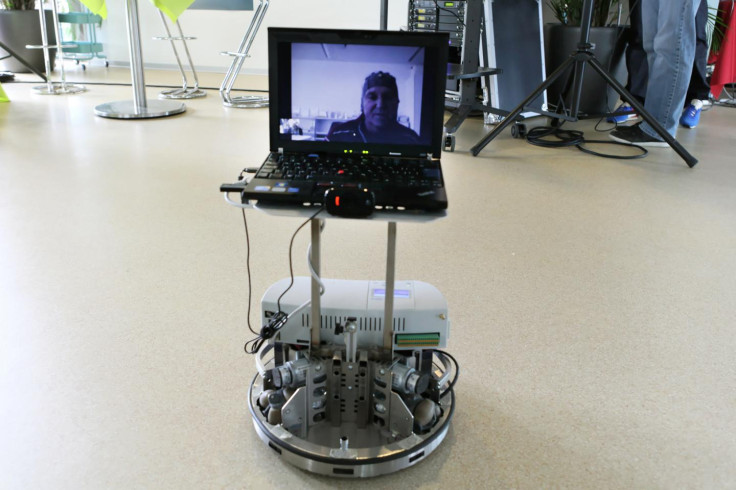Disabled people move distant robot using thoughts sent via internet

In yet another demonstration of an effective brain-machine interface, disabled people were successfully trained to pilot a distant robot using their thoughts transmitted via the internet.
All nine of them were able to interact with whoever crossed the robot's path, just like they themselves were moving.
The team at Brain-Machine Interface (CNBI), headed by José del R Millán, at Ecole polytechnique fédérale de Lausanne (EPFL, Switzerland) achieved the feat which is expected to enable disabled people.
"Each of the 9 subjects with disabilities managed to remotely control the robot with ease after less than 10 days of training," said Professor Millán.
Nine disabled people and ten healthy people in Italy, Germany and Switzerland took part in the task of piloting a robot kept in the EPL lab across the border. Their brain signals were transmitted in real time via the internet to the robot which moved as instructed.
Even when the pilot took a break, the robot continued on its path till receiving orders to stop.
There were no differences in results between healthy and disabled people.
The disabled people were able to effectively pilot the robot by pressing their head on buttons placed nearby.
The research brings to a close the European project called TOBI (Tools for Brain-Computer Interaction), which began in 2008.
The conclusions of the study are discussed in the June special edition of Proceedings of the IEEE, dedicated to brain-machine interfaces.
Scientists have already gone a step ahead to demonstrate brain-to-brain messaging, similar to telepathy, across a distance using a computer interface.
Last year, they transmitted the words "hola" and "ciao" in binary code from the brain of a person in India to the brains of three people in France.
Research at the University of Minnesota had shown that an undistracted mind developed by yoga and meditation can vastly improve the effectiveness of the brain in controlling a computer.
© Copyright IBTimes 2025. All rights reserved.





















